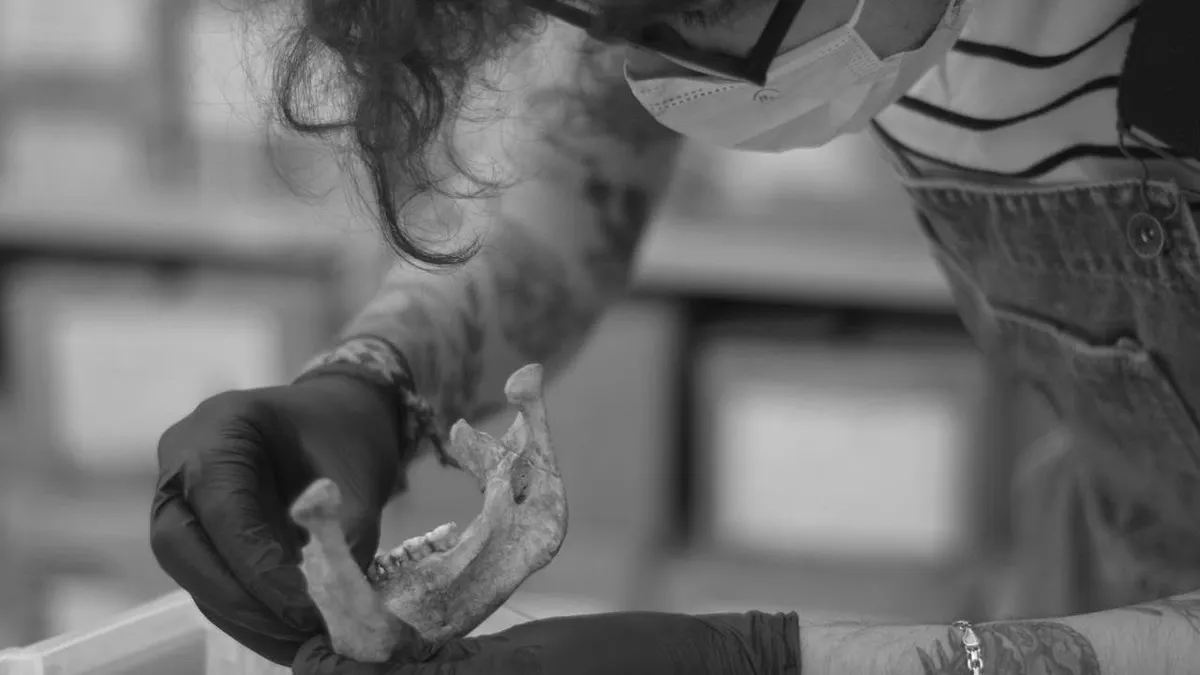
The latest research indicates that the first people to arrive in the Americas carried a unique genetic legacy derived from two extinct Eurasian human groups: the Neanderthals and the Denisovans. This significant finding suggests that the genetic traits inherited from these ancient ancestors may have played a crucial role in helping early Americans combat diseases in their new surroundings, as posited by the researchers involved in the study.
According to study co-author Fernando Villanea, a population geneticist at the University of Colorado Boulder, every individual alive today can trace their ancestry back to a combination of three distinct human species. Villanea explained, “What we think has happened is that humans had this archaic variation.” His colleague, Emilia Huerta-Sanchez, a population geneticist at Brown University, emphasized that as people migrated to the Americas, they could leverage existing genetic variants from other human groups rather than wait for new mutations to emerge to tackle unfamiliar pathogens.
The groundbreaking study was published on August 21 in the journal Science and provides an in-depth analysis of the MUC19 gene, which is vital for various biological functions, including determining mucus consistency. Remarkably, the researchers discovered that approximately one in three Mexicans today possess an MUC19 gene that aligns closely with that of the Denisovans, who inhabited parts of Asia between 200,000 and 30,000 years ago.
Previous research on the MUC19 gene among Indigenous Americans has focused on two key aspects. One research group highlighted that individuals of Indigenous American ancestry exhibit a high incidence of ancient human variants of MUC19, while another found that this gene became increasingly prevalent over time in North American Indigenous populations due to its evolutionary advantages. However, the new study unveiled a fascinating twist: the proportion of Denisovan MUC19 DNA within Indigenous Americans has grown over time, with the gene segment being passed down through an “Oreo-like gene sandwich” from Neanderthals.
This discovery marks the first instance where scientists have identified a Denisovan gene that was transmitted to humans through Neanderthals. Villanea expressed his astonishment, stating, “It’s wild. Is this the only instance of this happening, or are there more? We are still trying to figure it out.”
To assess the potential benefits of the Denisovan-specific MUC19 variants for Indigenous Americans, the research team compared genetic data from modern populations in Mexico, Peru, Colombia, and Puerto Rico, utilizing resources from the 1000 Genomes Project. They found that modern Mexicans exhibited the highest frequency of the Denisovan-specific MUC19 variants, with about 33% of the population carrying this version of the gene. In contrast, around 20% of Peruvians and only 1% of Colombians and Puerto Ricans possessed the variant. The researchers hypothesize that this disparity arises from the greater proportion of Indigenous American DNA present in Mexicans compared to the other groups.
In their investigation, the researchers were intrigued to find that the Denisovan segment of the MUC19 gene was situated between Neanderthal-specific DNA. This suggests that Neanderthals originally acquired these variants through interbreeding with Denisovans and subsequently passed them on to modern humans. As Ripan Malhi, a molecular anthropologist at the University of Illinois at Urbana-Champaign, noted, “The work is impressive, and now we need to learn more about the function of the Denisovan MUC19 gene.”
The next steps for Villanea and his team involve studying new biological sample collections that include genomic and trait data from Latino or Indigenous American populations. This research aims to uncover how the Denisovan-specific variants influence protein functionality. Huerta-Sanchez suggested that depending on the role of the Denisovan MUC19 variant, it could enhance the immune system's ability to combat specific pathogens or regulate immune responses differently compared to modern human variants.
Villanea concluded, “We suspect that it’s going to be doing something drastically different from what the modern human variant does.” This ongoing research promises to deepen our understanding of how ancient genetic legacies continue to shape the health and resilience of modern populations.